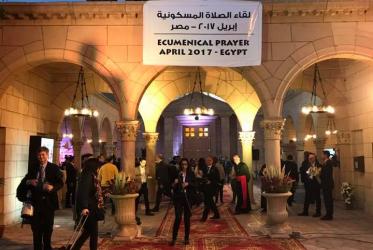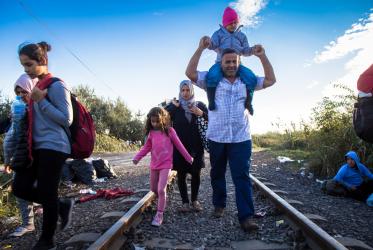Displaying 121 - 140 of 204
WCC decries escalation of Syria conflict
07 April 2017
In Lebanon, refugees face hardship - but find hope
16 March 2017
WCC gravely concerned over Israel’s travel ban
09 March 2017
‘No Christmas bells in Mosul’ for a third year, says Assyrian priest
14 December 2016
Standing Rock decision ”Gospel news” for indigenous communities
08 December 2016
In Syria and Iraq, minorities must come out of the darkness
28 November 2016
Out of the darkness
28 November 2016
Sorties des ténèbres
28 November 2016
Paralyzed by shock
28 November 2016
Paralysées par le choc
28 November 2016
Driven out
28 November 2016








